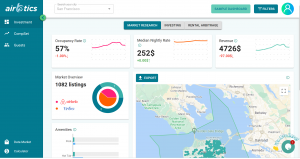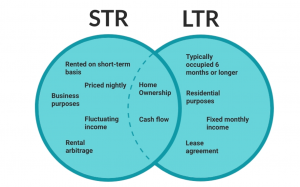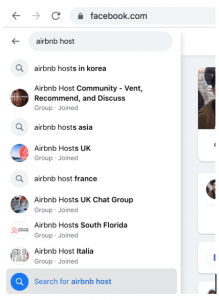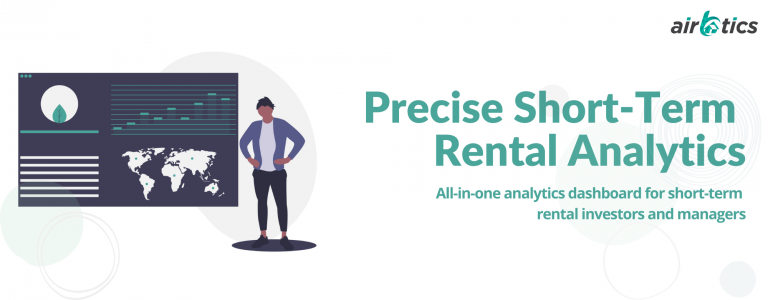Is Airbnb legal in San Francisco?
The answer is yes! San Francisco passed a law on February 1, 2015, that made short-term rentals permissible. Before this, San Francisco prohibited short-term residential rentals in multi-unit buildings, making Airbnb-style rentals illegal (although the law was rarely enforced). Short-term rentals are subject to some Airbnb Rules in San Francisco under the 2015 law.
Currently, there are 1,065 Airbnb listings in San Francisco, with 39,2% of entire houses earning up to $3,251 a month, 3% managed by professionals, and 27,5% managed independently. Apart from complete houses, San Francisco’s Airbnb offerings include 12% of private rooms. According to short-term rental data source Airbtics, a 2-bedroom apartment in San Francisco can make up to $56,712 each year.

Here we will provide some useful information that can help you better understand the Airbnb rules in San Francisco.
Short-Term Rentals Registration
Taxes and Business Registration
Occupancy Taxes

Airbnb rules in San Francisco
Eligibility for Hosting
Residency Rule for Primary Care- You must live in your listing for at least 275 days every year to register it. If you are present, you can share your entire space, and if you are away, you can rent your entire space for up to 90 days a year.
Insurance for Liability- The law requires hosts to carry liability insurance of at least $500,000. Our Host Protection Insurance (HPI) service satisfies this rule if you only host with Airbnb.
Rent Control- Under the Rent Control Administrative Code, you can charge guests the most amount per month.
Housing and Building Codes- San Francisco has rules and regulations for building construction, design, and maintenance, as well as health and safety regulations. Short-term rentals are not permitted in units that seem to be the subject of a City enforcement action about habitability.
Operating Requirements for your Listing
Reporting- By law, you must file quarterly reports in January, April, July, and October detailing the number and dates of your short-term rentals.
Recordkeeping- You must keep records showing that you are in compliance with the Administrative Code, such as proof of your permanent residency.
Concerns about safety- The inside of your front door must have a sign indicating the location of fire extinguishers, gas shutoff valves, fire escapes, and pull fire alarms.
Reference| Airbnb.co
Pros and Cons of running Airbnb in San Francisco
Short-term rentals are vacation rental properties rented out on a short-term basis to guests, like hotels. This form of rental helps guests to feel more at ease and “at home” because the properties are typically designed in this manner.
A long-term rental is the most common sort of rental property utilized for residential purposes. This sort of rental property is usually protected by a long-term lease agreement with more binding terms than a short-term rental. Renting out their homes for a higher price than their mortgage allows them to generate regular income regardless of the market. Because it is more traditional and well-known, most people are more familiar with this sort of rental property.

Now that we’ve defined vacation rentals and long-term rental properties, let’s look at each component of rental properties that explains both the benefits and drawbacks of a short-term or long-term rental.
Pros
Flexibility – You have the option of renting for days, weeks, or months. You can rent as much or as little as you want. There’s also the possibility of going on a trip at any time and earning money while doing so!
Privacy – Short-Term Rentals are ideal for families. They provide guests with more privacy and space than standard hotels.
Earns more money than a long-term rental – It’s simple to calculate: $1500 for a vacation week vs. $1500 per month to rent for a year.
Good Deductions – There are numerous popular deductions available to rental property owners. Cleaning and maintenance, insurance, management fees, and utilities are just a few of the costs to consider. You may make a loss and avoid paying taxes entirely if you take enough deductions.
Tax Breaks – Short-Term Rental Owners receive the best home-related tax breaks.
Less Wear and Tear on the Property – With frequent renters, you can keep up with tiny repairs before they become major issues!
Social Advantages – There are a lot of interesting people in the world, and many of them travel! Your next acquaintances in a Short-Term Rental could evolve into lifelong buddies!
Cons
Inconsistent payments – If you rely on a stable income, a yearly renter is a much safer option. There’s a chance you won’t have a Short-Term Renter for weeks or months.
Must cover the utilities – Utility costs are usually paid by long-term renters. Short-term tenants don’t.
Increased risk – There is a higher danger of theft, breakage, or problem tenants because of the number of tourists going through your doors.
Requires extra effort – Running a Short-Term Rental requires more effort because you are the innkeeper. You’ll be in charge of collecting money, scheduling clients, and bringing in tenants. You’ll do it every week instead of every 5 years or so!
Additional maintenance expenses – As the landlord, you are responsible for housekeeping, pool maintenance, and general upkeep. Not always the case with a long-term renter.
Some HOA – Managed neighborhoods make it tough and complicated to rent short-term Rentals. People prefer comfortable, peaceful surroundings where they feel safe and know everyone, rather than random strangers coming and going at all hours. They may submit complaints, and some HOAs may sue Short-Term Rental Owners.
Conclusion
If you’ve made it this far, you’re thinking of starting an Airbnb.
We’ve been assisting folks like you, who are first-time Airbnb hosts. We don’t provide consulting since we aren’t experts in running Airbnb businesses; but, we do provide useful data to Airbnb hosts.
You may use the Airbtics dashboard to figure out how much money you can make doing Airbnb in your city. Unlike other online Airbnb income calculators, it will provide you with a lot more useful information, such as
- which neighborhood to target,
- which amenities are in high demand,
- what is the market’s historical performance,
- what are the occupancy rates of a two-bedroom house,
- should I do a two-bedroom house or a three-bedroom house?
In that case, the tool might be too complex for you, visit our tutorials – With the data dashboard, you can get meaningful and actionable insights.
Well, if you are new, there are many Airbnb host communities on Facebook. Type “Airbnb host” in the Facebook search, and you’ll see plenty of active communities where you can get help from experienced Airbnb hosts.

To see full data of San Francisco– Click Here





